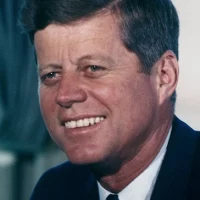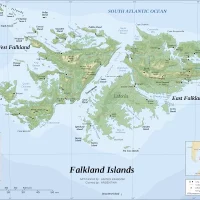Victor Masbayi was born in Nairobi, Kenya in 1951; he lived there with his family throughout his undergraduate college education at the University of Nairobi. While working for the African Medical and Research Foundation, Masbayi was sponsored to complete a Master’s Degree in Public Health at the University of Michigan at Ann Arbor. After receiving… Read More "Reflections on a Career: Health and Population in East Africa"
You Know a Coup is Coming but No One will Listen: Sudan 1964
Sudan’s long history has been riddled with internal conflict. The United Kingdom and Egypt controlled Sudan for the first half of the twentieth century, then agreed to cede it self-government in 1953. In December 1955, the premier of Sudan declared unilateral independence. The newly independent Republic swiftly fell into a pattern of civil wars, coups… Read More "You Know a Coup is Coming but No One will Listen: Sudan 1964"
CNN, Tanks, and Glass Walls: The August 1991 Coup
In August of 1991, hard-liners opposed to Soviet President Mikhail Gorbachev initiated a coup attempt to overthrow him. The rebellion occurred in part because of financial strife as the Soviet Union transformed quickly from a statist to a market-based economy. Long lines formed for essential goods including medicine and fuel, and grocery shelves were empty.… Read More "CNN, Tanks, and Glass Walls: The August 1991 Coup"
The Lion King of Swaziland
King Sobhuza II was proclaimed King of Swaziland at the age of four months and would rule for 83 years, becoming the world’s longest-reigning monarch. His grandmother, with help from his uncle, acted as regent of Swaziland until his coronation in December 1921, when his name was changed to Ngwenyama, which means “The Lion.” Sobhuza’s… Read More "The Lion King of Swaziland"
Warming to the New Administration at the State Department, 1980-1981
Administration transitions, during which power over the federal executive branch is transferred from the sitting president to the president-elect, can be stressful for federal personnel. During the weeks between Election Day and inauguration day, there can be changes in policy, staff and budgets, and the new administration needs to learn about the work of the… Read More "Warming to the New Administration at the State Department, 1980-1981"
After Fidel Castro ousted Cuban strongman Fulgencio Batista, expropriated American economic assets and developed links with the Soviet Union, President Eisenhower authorized the CIA in March 1960 to develop a plan to overthrow Castro. The agency trained and armed Cuban exiles to carry out the attack. Shortly after his inauguration, John F. Kennedy learned of the invasion plan, concluded… Read More "New President, Bad Plan: the Bay of Pigs Fiasco"
In 1982 a long-simmering dispute between the United Kingdom and Argentina over a small group of islands – the Falklands for the British, the Malvinas for the Argentinians – erupted into war. The disagreement arose from a dispute that goes back to the 1700’s when France, Spain, and Britain all tried to claim and settle the… Read More "Looking at the War in the Falklands/Malvinas from Both Sides Now"
Crisis Management: Occupation of USIS in South Korea, 1985
On May 25, 1985, seventy-three South Korean students barged into the United States Information Services (USIS) library in Seoul and began a three-day occupation. The students’ primary demand was an apology from the U.S. Ambassador, Richard L. “Dixie” Walker, as the representative of the American government, for the United States’ alleged role and complicity in… Read More "Crisis Management: Occupation of USIS in South Korea, 1985"
The 1991 Coup Against Mikhail Gorbachev
In August 1991, hard-line members of the Communist Party of the Soviet Union (CPSU) who opposed President Mikhail Gorbachev’s reforms and decentralization of government powers tried to overthrow him. The short-lived coup attempt is considered pivotal in the rise of Boris Yeltsin and the eventual breakup of the USSR. The attempt took place at a… Read More "The 1991 Coup Against Mikhail Gorbachev"
A New Way of Teaching America’s Frontline Diplomats
The State Department invests significant resources in training its incoming consular officers. They learn through courses taught at the Foreign Service Institute (FSI) by senior consular officers using group projects and case studies, as well as field trips to airports to observe how visa holders are processed at the port of U.S. entry. Officers must pass weekly… Read More "A New Way of Teaching America’s Frontline Diplomats"


